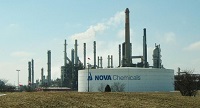Polymers Petrochemicals R-PET Automotive 29-03-2019 - Arhive
- China – Polyethylene Terephthalate
PET is steady, while its chain is assessed mixed.
- Polyamide 6 and its chain are steady.
PET Bottle grade export 1,060/1,100 $/ton – PET Bottle grade domestic market 8,500/8,600 yuan/ton – PET Filament grade SD domestic market 7,700/7,800 yuan/ton – PET Filament grade BR domestic market 7,800/7,900 yuan/ton
PTA Taiwan 840/850 $/ton – PTA domestic market 6,550/6,650 yuan/ton – MEG $ 6,20/635 $/ton – MEG domestic market 4,950/5,050 yuan/ton – PX Korea 1,020/1,030 $/ton
POY 150D/48F domestic market 8,950/9,050 yuan/ton – DTY 150D/48F domestic market 10,550/10,650 yuan/ton – PSF domestic market 8,700/8,850 yuan/ton
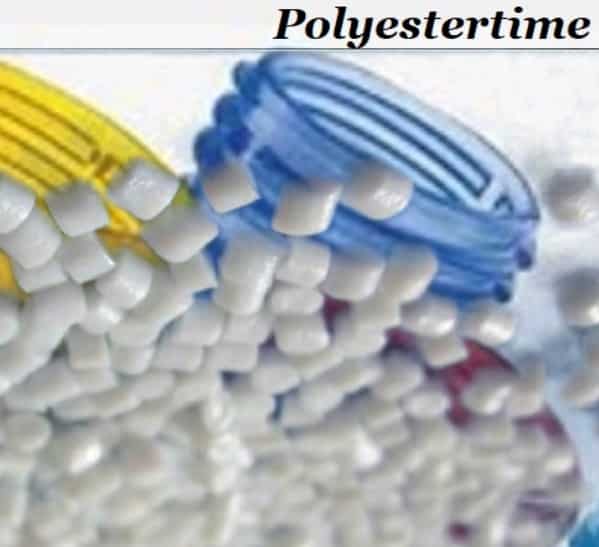
- Turkish Lira Crashes 5% And Prompts Contagion Fears – Currency Analysts Say Rand And Real Vulnerable
After firming overnight, the Turkish Lira continued to incur losses in early Friday trading with the US Dollar to Lira exchange rate last seen trading at 5.63607, up 1.89% in favour of the Greenback.
Speaking late on Thursday, Finance Minister Berat Albayrak said Turkish banks had provided billions of Lira liquidity to FX markets and that market normalisations had begun.
Nevertheless, the overarching issues of US-Turkey tension remains prevalent leading some analysts to maintain a bearish outlook on the TRY.
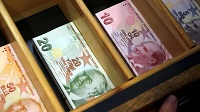
Crude Oil Prices Trend

Lucozade Ribena Suntory is intensifying its sustainability programme by announcing the launch of an ambitious redesign project of its Ribena bottles.
Ribena was the first UK soft drink brand to use bottles made from 100% rPET
This is the company’s latest move to ensure all its packaging is fully recyclable within the UK’s current recycling infrastructure.
The manufacturer has appointed industrial design agency Seymour Powell to lead the redesign, following an in-depth agency pitch process which began in 2018.
Michelle Norman, Director of External Affairs and Sustainability at Lucozade Ribena Suntory said: “Lucozade Ribena Suntory takes its sustainability commitments very seriously and we are extremely proud to be announcing this packaging redesign to ensure our brands continue to be as sustainable as possible.”
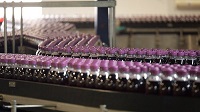
The European Union’s (EU) proposal to introduce a 90% collection target for PET beverage bottles by 2029 is unlikely to be met without significant investment in infrastructure and waste management collection, according to Wood Mackenzie Chemicals.
Commenting on the directive, Isabelle Gilks, Wood Mackenzie Analyst, said: “The target placed on PET beverage bottles is arguably the most ambitious of those in the proposal.
To put this number into context, the 2017 European PET beverage bottle collection rate stood at an average of 58%. In volume terms, EU member states would need to collect twice as many bottles, by weight, in 2029 when compared to 2017.

Michael Tobias is the founder and principal of New York Engineers, an Inc 5000 Fastest Growing Company in America. He leads a team of 30+ mechanical, electrical, plumbing, and fire protection engineers from the company headquarters in New York City, and has led over 1,000 projects in New York, New Jersey, Pennsylvania, Connecticut, Florida, Maryland and California, as well as in Singapore and Malaysia.
A graduate of Georgia Tech class of 2004 with a Bachelor’s in Mechanical Engineering with honours, he is an advocate for green design and technologies, and has designed to both Passive House and Net 0 energy standards.

Oil prices have extended losses into a second straight session after an official data reported a rise in US crude stocks.
International Brent crude oil futures were down 20 cents at $67.63 a barrel, while US West Texas Intermediate (WTI) crude futures declined 23 cents at $59.18 per barrel, Reuters reported.
Oil prices came under pressure after US crude stocks witnessed an increase, although analysts pointed to support from efforts led by the Organization of the Petroleum Exporting Countries (OPEC) and non-affiliated members such as Russia, known as OPEC+, to cut production and increase prices.
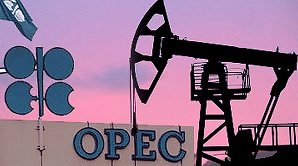
Polyethylene Terephthalate is a resin, which is made by the combination of two monomers, purified terephthalic acid and modified Ethylene Glycol, to form a polymer called Polyethylene Terephthalate by esterification reaction.
It is mainly used in production of synthetic fibres, bottles, etc.
It is tough and temperature resistant.
The main difference between PET and Bio based PET is that the former uses non-biodegradable material in formation of PET and latter uses biodegradable material for producing the resultant polymer.

The Japanese parliament approved an extension of insurance coverage for imports of Iranian crude oil effective from the start of April and expiring a year later.
However, this does not mean Japanese refiners will continue buying Iranian crude if they do not score sanction waivers from Washington.
Reuters reports Japan’s parliament approved the import insurance extension yesterday.
Now, refiners are pressing the government to find a way to secure an extension to the waiver that Washington granted Tokyo and seven other importers in November.
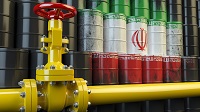
Potential synergies are being explored between BiologiQ’s NuPlasticQ biopolymer and Dow’s PE resin portfolio
A new collaboration has been announced between Dow, Midland, Mich., and BioLogiQ, Idaho Falls, Idaho, to evaluate potential synergies between the latter’s novel NuPlastiQ plant-based biopolymer and Dow’s PE resin portfolio, in an effort to explore enhanced sustainable plastic options.
Dow and BioLogiQ will work together to test and consider potential applications that incorporate bio-based resins with PE, in the hopes of enabling more plant-based plastic products.
Seven-year-old startup BioLogiQ will utilize Dow’s industry-leading research and development, as well as the company’s extensive plastic resin sales and distribution network, to determine if they can successfully leverage plant-based plastics.
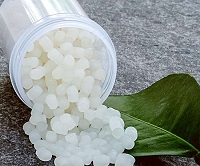
Every year around this time two things can be counted on: winter makes the official astronomical changeover to spring on the date of the equinox—though there’s frequently a disconnect between the calendar and the weather—and March Madness, i.e., the annual NCAA men’s basketball tournament field of 64 (or more) of the top teams, dominates sports coverage, chatter around many offices and generally reaches a feverish pitch.
Exactly like the college hoops tournament, PlasticsToday determines its March winners by performance, though the editorial “tournament” is based solely on a metrics analysis of top-read articles at the Packaging Channel for the period.
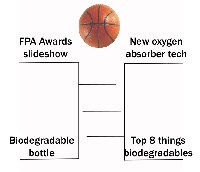
The beta PBT powder will be officially announced at AMUG next week
At the AMUG conference in Chicago next week, Dutch global sciences company Royal DSM will present a beta version of its new PBT powder product for 3D printing. The material marks the company’s first powder-based material for the additive manufacturing industry. Up until now, Royal DSM’s 3D printing portfolio has largely focused on polymer filaments and resins.
As a diamond sponsor of the annual AMUG conference, Royal DSM is preparing for a big showing next week. Not only will the company be unveiling a beta version of its first polymer powder for 3D printing, but DSM experts will also be presenting at various points during the event. Over the course of the conference, DSM plans to put an important emphasis on the sustainable potential of AM.

Company’s PET enzymatic recycling technology recognized for its patentability
Core process and technology protected until 2033
CARBIOS now holds 29 patent families worldwide, 11 related to PET recycling technology
“This patent strengthens our competitive position for the recycling of PET and it is gratifying to have the United States Patent and Trademark Office recognize the innovative nature of our proprietary technology.”
CARBIOS , a company pioneering new, bioindustrial solutions to reinvent the lifecycle of plastic and textile polymers, is pleased to announce that the United States Patent and Trademark Office (USPTO) has granted CARBIOS a patent on its proprietary process for PET recycling from plastic waste using enzymatic technology.
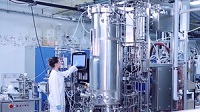
Techtextil is one of the most important exhibitions in the field of nonwovens and Dilo has participated since its inception in 1986. During a history of more than 100 years Dilo has always set new standards with technologies like Hyperpunch and DI-LOUR needling. These developments have opened new markets for nonwovens and raised the bar regarding quality and efficiency.
The development cycles in machine building cannot be measured in months. Therefore we are pleased that one of our latest developments in horizontal crosslappers, the “Hyperlayer” is now being installed in several spunlace production lines.
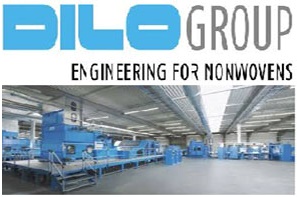
Philippine’s plastic situation is one of the worst, but thankfully, there is a glimmer of hope for the country’s plastic dilemma.
A group of students has discovered microorganisms that are capable of “eating” plastic in a hyper alkaline spring in Zambales in the southern area of the country. The discovery of the plastic-eating bacteria paves the way to developing a new approach in solving the plastic problem that the third world country is currently battling.
The study that led to the landmark discovery was conducted by researchers from the biology department of the University of the Philippines – Baguio where they uncovered four strains of bacteria that are proficient in biodegrading low-density polyethylene (LDPE), the kind of plastic typically used for plastic bags, cling wraps, shampoo bottles, and other single-use plastic containers.
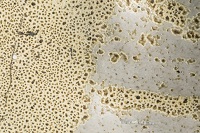
The European Parliament has voted to ban problematic single-use plastic products across the EU in a bid to tackle plastic pollution.
The new Single-Use Plastic Directive, proposed by the European Commission (EC) last year and voted for by MEPs yesterday (27 March), will prevent the sale and use of 10 of the most polluting single-use plastic products on the EU market, including cotton bud sticks, cutlery, straws, stirrers and polystyrene containers, where alternatives exist. EU member states will have until 2021 to transpose the Directive into national legislation following the final adoption by the European Council of Ministers.
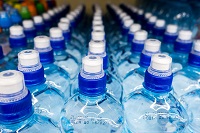
Just months after Shell Canada said it’s looking for a buyer for its refinery near Corunna, the Bloomberg news service is reporting the owners of Nova Chemicals are exploring options that may include the possible sale of a portion of the Canadian company.
Nova Chemicals, which has three production sites in St. Clair Township next to Sarnia, is owned by Abu Dhabi’s Mubadala Investments Co.
The Bloomberg report, based on people with knowledge of the situation, says Mubadala Investments is look at the possibility of selling a portion of Nova Chemicals to a Canadian pension fund or another chemical company.
